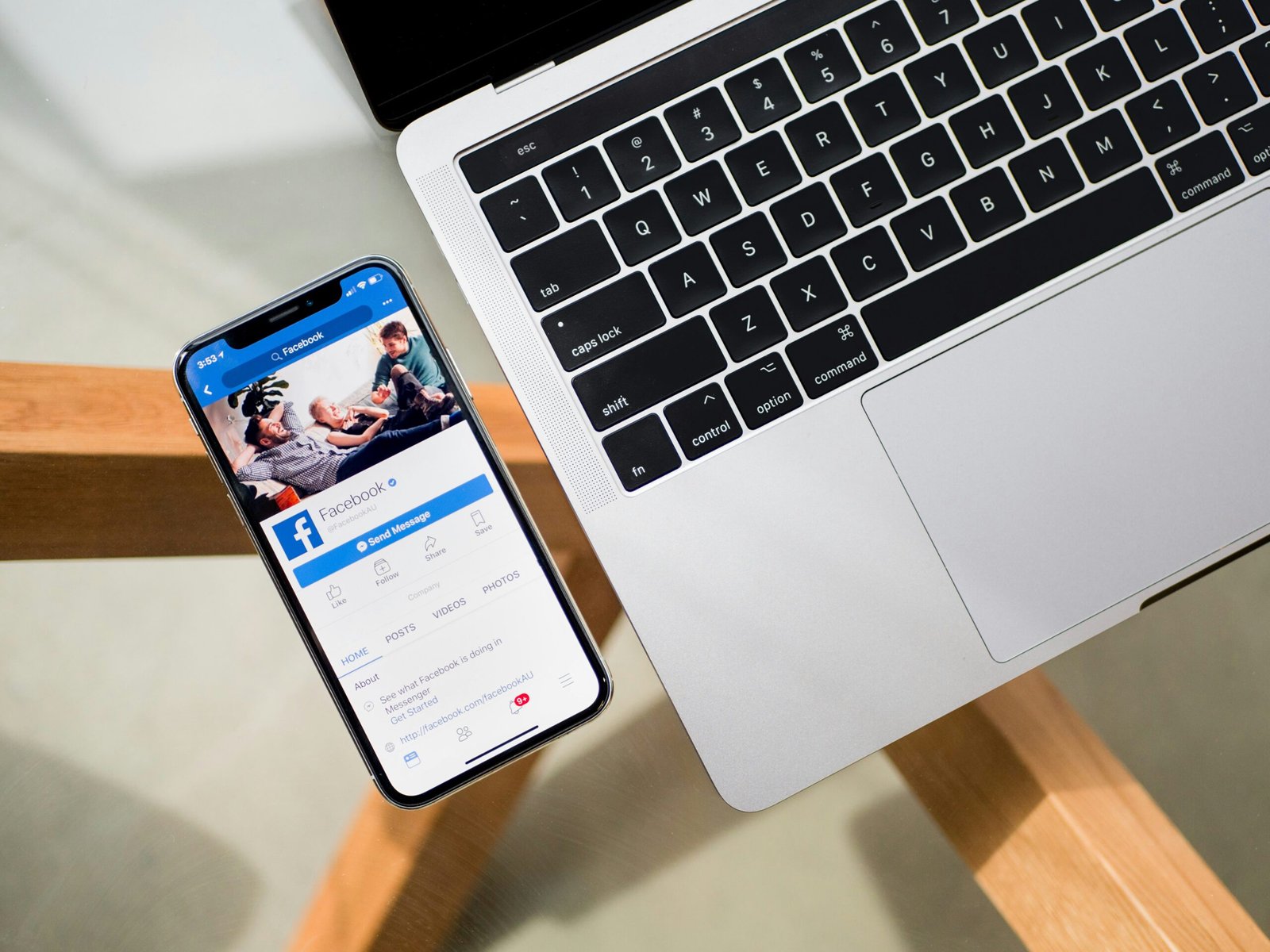Social Media: Empowerment or Enslavement?
 Photo by Timothy Hales Bennett on Unsplash
Photo by Timothy Hales Bennett on Unsplash Introduction to Social Media’s Dual Nature
Social media, as a pervasive aspect of modern life, embodies a dual nature that can significantly influence both individual users and society at large. On one hand, these platforms serve as essential tools for empowerment, fostering communication, creativity, and community building. They provide avenues for self-expression, allow users to share their opinions, and help create virtual spaces for like-minded individuals. For many, social media acts as a catalyst for social change, enabling grassroots movements to gain visibility and support, which can lead to tangible real-world outcomes.
However, the very characteristics that make social media effective as a tool for empowerment can also result in a form of enslavement. The addictive design features of various platforms often encourage excessive consumption of content, leading to a distortion of priorities, diminished attention spans, and potential mental health issues. Users may find themselves trapped in cycles of scrolling, striving for validation through likes and shares, which can result in negative self-worth and anxiety. The constant connectivity can blur the boundaries between personal and public life, making it challenging for individuals to disconnect and engage meaningfully with their surroundings.
This duality of social media is a critical lens through which to understand its impact. While it offers remarkable opportunities for collaboration and engagement, it also raises concerns about privacy, misinformation, and the potential for isolation despite being constantly connected. The intention behind using social media influences its effectiveness as a tool—whether it becomes a means of empowerment or a source of enslavement often depends on individual choices and societal influences. Addressing this dichotomy is crucial for navigating the complexities of social media in today’s digital landscape.
The Empowerment Aspect of Social Media
Social media platforms have revolutionized the manner in which individuals communicate and access information. One of the foremost positive facets of social media is its ability to empower users by providing instantaneous access to a wealth of information. This democratization of information has enabled individuals from various backgrounds to educate themselves on diverse topics, thus enhancing their understanding of both local and global issues. Consequently, this engagement fosters informed discussions and encourages civic participation, allowing users to become active participants in societal dialogues.
Moreover, social media facilitates seamless communication among users, regardless of geographical boundaries. This connectivity not only strengthens existing relationships but also helps forge new ones, particularly among individuals with shared interests or backgrounds. Social platforms enable users to share personal narratives, which can inspire and uplift others, reinforcing a sense of belonging and community. Experiencing and sharing stories of triumph, struggle, and resilience empowers individuals, especially those from marginalized groups, to express themselves without the constraint of traditional media limitations.
Additionally, social media serves as a powerful tool for amplifying marginalized voices that are often overlooked in mainstream media. Movements such as #MeToo and Black Lives Matter have harnessed the reach of social media to raise awareness about critical social issues, mobilizing support and fostering collective action. Through the use of hashtags, videos, and shared experiences, these movements have been able to engage a vast audience, facilitating discourse surrounding equality and justice. This empowerment through social media not only cultivates awareness but also galvanizes support for necessary societal changes.
In conclusion, the positive aspects of social media are evident in its capacity to empower individuals, enhance communication, and promote important social movements. By offering platforms for engagement and amplification of voices, social media plays a pivotal role in shaping a more connected and informed society.
The Psychological Impacts of Social Media Usage
The psychological effects of social media usage have garnered increasing attention from researchers and mental health professionals. On one hand, social media platforms provide opportunities for enhanced social connections, fostering a sense of belonging and community among users. For many individuals, these online interactions serve as a valuable support system, contributing positively to overall well-being. Through the sharing of experiences, achievements, and even struggles, users can obtain positive reinforcement from their peers, which can lead to heightened self-esteem and more optimistic outlooks on life.
Conversely, there are significant negative implications associated with social media, particularly concerning mental health. One of the most concerning aspects is the phenomenon of social comparison. Users often find themselves assessing their lives against the curated and often unrealistic portrayals presented by others. This constant comparison can result in feelings of inadequacy, anxiety, and depression. Research indicates that individuals who engage extensively with social media are more likely to experience depressive symptoms, particularly when their self-worth becomes intertwined with online approval and validation.
Moreover, the addictive nature of social media cannot be overlooked. Platforms are designed to capture user attention, creating a cycle where individuals constantly check for updates, likes, and comments. This compulsion can lead to increased anxiety levels, particularly if users perceive they are missing out on crucial social interactions. The disruption of daily life and responsibilities often associated with excessive social media use can further exacerbate feelings of isolation and distress.
In summary, while social media can empower users through connectivity and support, it also harbors potential risks that can significantly impact mental health. Striking a balance between positive engagement and awareness of the adverse consequences is crucial for fostering a healthy relationship with these digital platforms.
Social Media and the Spread of Misinformation
Social media platforms have become potent instruments for the dissemination of information. However, they are also notorious for the rapid spread of misinformation and disinformation. Misinformation refers to false or misleading information shared without malicious intent, while disinformation is shared deliberately to deceive. The algorithms that govern social media prioritization often favor sensational content, which can lead to these phenomena proliferating at unprecedented rates. As users scroll through their feeds, they are frequently exposed to information that lacks verification, which can severely distort public understanding.
The implications of misinformation are profound, particularly in the context of public opinion and political discourse. Misinformation can shape people’s beliefs and attitudes, influencing their actions in critical situations such as elections, health crises, or social movements. For instance, during elections, misleading information about candidates or voting procedures can undermine democratic processes and dissuade voter participation. Furthermore, the spread of false information regarding public health issues, such as vaccines or pandemics, can lead to harmful behaviors and increased skepticism towards empirical science.
The overall truthfulness of the information accessed through social media has been significantly compromised as a result of these dynamics. Users may find it increasingly challenging to discern credible sources from those purveying misinformation. Consequently, the erosion of trust in media and information institutions can foster societal polarization and weaken the foundations of informed citizenship. In this environment, the responsibility falls on both social media platforms and users to critically evaluate the content they engage with while promoting media literacy as a crucial skill in navigating the digital information landscape. The balance between empowerment through information access and the shackles of misinformation remains a significant challenge in our contemporary society.
The Role of Data Privacy and Surveillance
In the current digital landscape, social media platforms have become the nexus through which extensive amounts of personal data are generated, collected, and analyzed. This leads to significant privacy concerns regarding how that data is not only handled but also utilized by corporations and government entities. At the forefront of these discussions is the concept of user agency, raising essential questions about consent and the ethical implications of data use.
When individuals engage on platforms such as Facebook, Instagram, or Twitter, they often unwittingly contribute to vast data pools. These companies harvest information ranging from basic demographic details to intricate patterns of online behavior. Surveillance practices emerge as companies and governments leverage this data to track user activities, preferences, and interactions. Consequently, this pervasive data collection fosters a sense of vulnerability among users, as their online footprints are meticulously documented and analyzed. The potential exploitation of this data is alarming, particularly when it comes to targeted advertising and political campaigning, where personal information may be weaponized to influence decision-making and manipulate opinions.
Furthermore, the lack of transparent privacy policies hampers users’ ability to make informed choices about their data. Many individuals find themselves trapped in a paradox where the desire for connection through social media competes against the need for privacy. This is exacerbated by the often convoluted terms and conditions that accompany user agreements, leaving users with minimal understanding of how their data will be used. In this climate, the challenge of maintaining personal privacy becomes increasingly complex, diminishing the individual’s control over their own information and autonomy in the digital realm.
This intricate interplay between data privacy, surveillance practices, and user consent fundamentally shapes the social media experience today, warranting critical consideration and discussion as we navigate the digital age.
Social Media’s Impact on Societal Relationships
Social media has fundamentally transformed the way individuals interact, fostering both positive and negative effects on personal and societal relationships. At its core, social media platforms facilitate communication across vast distances, enabling users to maintain long-distance relationships with ease. Families can share experiences and milestones in real-time, reducing the emotional strain of physical separation. This capability has become particularly significant in an increasingly globalized world, where people frequently relocate for work or education. The ability to connect with loved ones through these platforms serves to strengthen familial bonds and friendships in ways that were previously impractical.
Furthermore, social media serves as a tool for fostering new connections. People with shared interests can engage in communities that transcend geographic boundaries, forming friendships that may not have been possible otherwise. Such platforms can empower voice and foster collective support in various social, political, and cultural movements. For marginalized groups, in particular, social media functions as a critical space for visibility, collaboration, and advocacy, highlighting issues that might otherwise remain obscured in mainstream narratives.
However, the double-edged nature of social media cannot be overlooked. While it provides numerous opportunities for connection, it also fosters superficial interactions that can lead to feelings of isolation. Individuals may find themselves prioritizing online connections over in-person relationships, leading to a paradox of increased connectivity but decreased emotional intimacy. The curated nature of social media interactions often presents idealized versions of life, resulting in unrealistic comparisons and feelings of inadequacy among users. Moreover, excessive use of these platforms can contribute to a decline in face-to-face social skills, which are vital for developing deep and meaningful relationships.
In summary, social media reshapes societal relationships in complex ways, simultaneously enhancing communication and posing challenges. Navigating these dynamics requires individuals and communities to find balance, embracing the constructive aspects while mitigating the potential for isolation and disconnection.
Empowerment Through Activism and Advocacy
Social media has emerged as a powerful tool for activism and advocacy, enabling individuals and groups to mobilize, communicate, and effect change on a global scale. Platforms such as Twitter, Facebook, and Instagram have bridged the gap between grassroots movements and a wider audience, facilitating collective action in ways previously unimaginable. By harnessing the reach and engagement of social media, significant social movements have been launched, raising awareness on issues ranging from climate change to social justice.
One prominent example of social media’s role in activism can be seen in the #BlackLivesMatter movement. Originating from a grassroots campaign, this hashtag became emblematic of a broader struggle against systemic racism and police brutality. Through social media, activists have galvanized support, organized protests, and engaged in crucial dialogues aimed at influencing public policy. The virality of such campaigns has not only empowered individuals to participate in activism but has also compelled institutions to reevaluate their stances on race and equality.
Another striking instance is the #MeToo movement, which harnessed the power of social media to address sexual harassment and assault. By sharing personal stories and experiences on these platforms, individuals contributed to a larger narrative that prompted cultural shifts and legislative changes around the world. This movement exemplifies how social media can amplify marginalized voices and drive significant discussions, making individuals feel empowered in their advocacy.
Additionally, the Arab Spring is a historical example of social media’s impact in catalyzing political change. Social platforms played a crucial role in organizing protests and disseminating information, enabling citizens in multiple countries to unite against oppression. This highlighted the transformative potential of social media, as it provided a means for individuals to voice their grievances and connect with others who shared similar aspirations for freedom and democracy.
In conclusion, social media serves as a catalyst for empowerment through its facilitation of activism and advocacy. By enabling collective action, individuals can influence societal attitudes and public policy, demonstrating the profound impact that interconnectedness can have on effecting change.
The Enslavement of Social Media: Addiction and Dependency
In contemporary society, social media platforms have revolutionized communication and interaction; however, they also present significant risks associated with addiction and dependency. The compulsive nature of social media usage often leads individuals to prioritize online engagement over real-life experiences. This addiction generates a detrimental cycle where users find themselves continuously seeking validation through likes, shares, and comments, reinforcing their need for digital social approval.
Psychologically, many individuals exhibit behaviors indicative of dependency, akin to substance abuse. The brain’s reward system becomes wired to the instant gratification provided by social interactions online, which can lead to escalating usage patterns. Users may experience withdrawal symptoms when they are unable to access their preferred platforms, demonstrating the compelling grip social media can hold. These psychological patterns highlight the importance of recognizing social media’s potential for addiction and its broader implications.
Moreover, the societal repercussions of this dependency cannot be overlooked. As individuals spend excessive time on these platforms, their productivity in professional and personal domains suffers. Reports indicate significant declines in workplace performance, creative thinking, and problem-solving abilities attributable to frequent social media distractions. In personal relationships, dependency may lead to a decline in face-to-face interactions, resulting in weakened connections and heightened feelings of loneliness, despite being digitally “connected.”
Furthermore, this addictive cycle can exacerbate mental health issues, such as anxiety and depression, as users engage in constant comparisons with others and face the pressure to curate a perfect online persona. Stratifying the allure of social media against the mental toll it can exact emphasizes the need for a balanced approach to its usage, one that observes both the empowering qualities and the enslavement risks. Addressing digital addiction is crucial for reclaiming control over how social media interfaces with daily life.
Navigating a Balanced Relationship with Social Media
Establishing a healthy interaction with social media is vital for personal well-being and mental health. To cultivate a balanced relationship, users should adopt practices that maximize the empowering aspects of social media while minimizing potential detriments. A few strategies can be integral in achieving this equilibrium.
First, it is important to set clear boundaries regarding time spent on various platforms. Allocating specific time slots for social media use can reduce feelings of overwhelm and the risk of addiction. Utilizing built-in features or third-party applications to monitor and limit usage can assist individuals in adhering to these boundaries. Additionally, designating certain times of the day as “social media-free” periods can promote mindfulness and enable users to disconnect, instead focusing on face-to-face interactions and personal interests.
Next, curating one’s online environment intentionally is essential. Users should take an active role in selecting who they follow and interact with, opting for accounts that uplift and inspire rather than those that provoke negativity or self-comparison. Engaging with positive content, such as motivational quotes or educational resources, can enhance the social media experience significantly.
Moreover, striking a balance between digital and real-life connections is crucial. Social media should serve as a complement to, rather than a replacement for, in-person relationships. Actively participating in community events or hobbies can foster connections that enhance emotional health and satisfaction.
Finally, practicing self-reflection can help individuals discern how social media impacts their mood and overall well-being. Regularly assessing feelings before and after social media use can provide insight into the relationship one has with these platforms. By adopting these strategies, individuals can navigate a balanced relationship with social media, empowering themselves while avoiding potential enslavement to digital distractions.



Tidak ada komentar